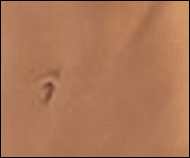
It's particularly important to remember that divisions into embryology, physiology, psychology, sociology, and therapy are not part of nature, and that, in what is important to us, there is really only one study human neurobiology. - Motto for Institute of Psychoanalysis 1952
Embodiment epistemology: suggested readings
Science and philosophy of science:
Gleick, James 1988, Chaos: Making a New Science
Guenther H 1977 Foreword, in Time, Space and Knowledge, T Tulku, Dharma Publishing
Keller Evelyn A feeling for the organism.
Physicist Evelyn Fox Keller writing about a corn geneticist, Barbara McLintock, who got the Nobel a few years back. It is the story of the development of McLintock's ability to perceive the genetic structures she was tracking.
Oyama Susan 1985 The Ontogeny of Information, Cambridge
Oyama Susan 1993 The problem of change, in Brain development and cognition: a reader, M Johnson ed, 19-30 Blackwell
Rosen R 1991 Life Itself, Columbia
Rosen R ed 1985 Theoretical biology and complexity Academic Press
Thompson D'A 1963 On growth and form Cambridge
Tiles Mary The philosophy of set theory
Beautiful demonstration of non-Platonic philosophy of mathematics.
Philosophy of mind, neuroscience, philosophy of perception, cognitive science:
Damasio A 1994 Descartes' error Grosset/Putnam
Damasio A 1999 The feeling of what happens: body and emotion in the making of consciousness Harcourt Brace
- Neuroscientist's introductions to the cognitive significance of emotion. Easy to read. (EE)
Damasio A, H Damasio 1994 Cortical systems for retrieval of concrete knowledge: the convergence zone framework, in Large-scale neuronal theories of the brain, C Koch and J Davis eds, 61-70 MIT
Dennett D 1991 Consciousness explained Little Brown
Edelman G 1989 The remembered present Basic Books
Epp Ellie 2002 Being about: perceiving, imagining, representing, thinking
- Comprehensive overview of embodied epistemology. (EE)
Epp Ellie 2001 "Leaving the land; perception and fantasy", in Land, relationship and community -- a symposium, S Semchuck ed, 10-18 Presentation House Gallery
Freedman W 1991 The physiology of perception, Scientific American, Feb 1991:78-85
Fuster, J 1995, Memory in the Cerebral Cortex: an empirical approach to neural networks in the human and nonhuman primate MIT
Gibson J 1979 The ecological approach to visual perception Houghton Mifflin
Goldstein K 1963 The organism, 2nd ed Beacon Press
Hebb D 1949 The organization of behavior Wiley
Hilgard E 1977 Divided consciousness: multiple controls in human thought and action John Wiley & Sons
Lakoff G and Johnson M 1999 Philosophy in the Flesh: The Embodied Mind and Its Challenge to Western Thought Harper Collins
- Good starting place for basic embodied epistemology. (EE)
Langer Monika 1989 Merleau-Ponty's Phenomenology of perception Macmillan Press
Langer Susanne 1988 Mind: an essay in human feeling, abridged G van den Heuvel Johns Hopkins
Maturana H, F Varela 1987 The Tree of Knowledge: The Biological Roots of Human Understanding Shambala
Perls F, R Hefferline, P Goodman 1965 Gestalt psychology: excitement and growth in the human personality Dell
Pribram K 1991 Brain and perception Lawrence Erlbaum
Rizzolatti G et al 1997 "The space around us", Science 277:190-191
Ryle G 1949 The concept of mind
Sewall Laura 1999 Sight and sensibility: the ecopsychology of perception, Jeremy P.Tarcher/Putnam.
- Theoretical sections of this book can be skipped but Sewall's descriptions of her own investigations of visual perception are wonderful instances of adventure in embodiment. (EE)
Tononi G, G Edelman 1998 Consciousness and complexity, Science 282:1846-1851
Tuana Nancy "Material locations: an interactionalist alternative to realism/social constructivism"